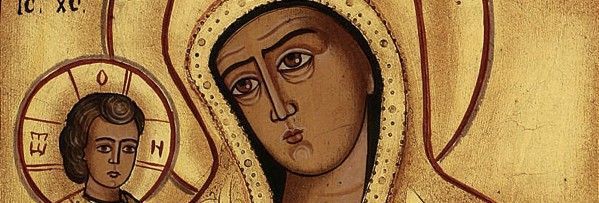For lightness without masks
(Mt 12:14-21)
"He will not quarrel or scold, nor will anyone hear his voice in the squares. A cracked reed he will not break and a smoking lamp he will not extinguish, until he has brought judgment to victory. And in his name shall the nations hope" (Mt 12:19-20).
The authorities condemn Jesus to death because He dared to expose the malignity of their mercenary expedients (an art in which they are masters).
Instead of becoming educators, the leaders of official religiosity remain the protagonists of a pyramidal, oppressive structure.
The ostracised and rejected, on the other hand, alienated and outcast from society and from the circle of the 'greats', present themselves to the Lord without masks, with many insecurities and ailments.
They realise that the humanising and divine being remains exactly opposite to that of those who represent them. According to what the people hoped for in their hearts, without subterfuge; at their disposal.
Not an all-powerful master, who would make the path of the elect more comfortable and prestigious.
On the contrary, because there are many daily and inner problems that deserve greater Presence.
The 'best' of the world (even the pious) mock the Father's Face. The little people wait for Him, await Him as their only hope.
They sense that there is still much to be found, and that only He can inspire their actions, thus opening them to Rebirth.
They feel in tune with the young Master who has chosen their social class, that of the unfortunate, considered wrong and disconcerting, but who every day brings up the same problem of God in a forthright manner.
Feeling like a person and letting oneself be set free is the motif of the whole sacred story: the fruit of Exodus that breaks bounded bonds.
It shatters them, because it even favours the itinerant coming and going of the inexperienced person who seeks and allows himself to be questioned - the opposite of the false 'staying put'.
That which is not made of affective tonality and deep emotional weight, yet constantly asks to be taken in charge and in consciousness.
The hard and stifled life of the Little Ones has taught them to always be ready for surprises, for new actions; even for destabilising crises.
This is the best way to stay hooked on life and the very possibility of realising it, activating it from the hiding place.
In the clamour and social approval, which denies the problems, their Mission would remain distorted.
While the outwardness of the leaders does not yield to dedication, to breaking - even from within.
Thus it does not become a new consciousness.
Sick of grandeur and craving for tranquillity, the ancient political and religious leaders project into the idea of the Messiah their own double, corrupt and contrived being, only conspicuous.
Unable to measure themselves against the summary.
They do not understand the discreet power of the Lord, his wise energy (and dim style), with lasting benefits.
They are willing to stun disheartened people, and they do so gladly with models, comparisons, budgets, empty formulas, and overflowing incitements.
But they remain at a safe distance when it comes to living together, sharing, and cheering up.
They continue to judge, but without giving anything, let alone giving themselves - and converting to the poor, without manipulating them.
Their aversion to Christ - who came for the redemption of the 'multitudes' (vv.15.18.21) - clashes precisely with the people's incessant need.
The people know their own fabric of all-too-real mud, and they long for emancipation.
Today, as then, the Silence of the Lord's true Anointed [who re-proposes himself in his authentic witnesses] overcomes the temptation of the spectacular.
It overcomes the mania of the extraordinary; of that which is propaganda and publicity for the sake of proselytism and currency.
We too preserve the characteristics of the Master's Work, whose universally beneficial Action we continue.
We wish to correspond, in the discretion and small simplicity of an unknown, but forward-looking life.
God knows that the Shadow side is sometimes the best part of His people, and of us.
To internalise and live the message:
Are there ambiguous people inclined to value normalised - i.e. prodigious - interventions who consider your Mission distorted by Silence?
Do you yourself feel that your realisation is stifled by the Silence? Or vice versa activated?












